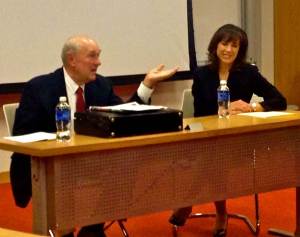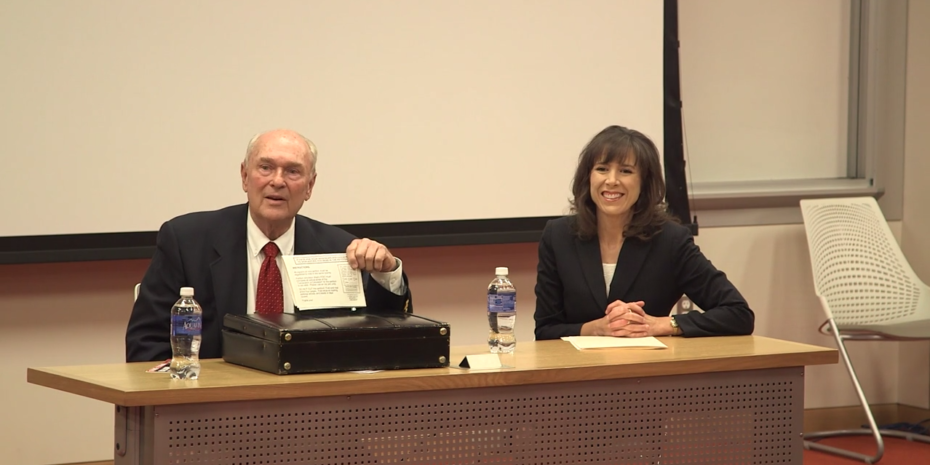On October 24 the Rose Institute of State and Local Government hosted a conference on California’s Three Strikes law. The conference reviewed the history and effects of the controversial law and also featured a debate on Proposition 47, which reclassifies certain crimes as misdemeanors and thus further narrows the scope of Three Strikes.

The event began with Mike Reynolds, author of California’s Three Strikes Law, and Professor Jennifer Walsh of Azusa Pacific University reviewing the history of the law and the events leading to its enactment. Mr. Reynolds started the session with a short video from the program 60 Minutes. It detailed how the murder of his daughter, Kimber, by someone who had been in and out of prison many times, led him to propose the harshest sentencing law in the state. According to Reynolds, “Thirty years ago, the most severe California penalty for first degree murder was 16 years.” Three Strikes, which passed twenty years ago as both an emergency bill and an initiative, was designed to counter criminal recidivism. Mr. Reynolds referred to it as a success with specific mention to the second strike as being the most effective. Professor Walsh agreed and noted that “Three-Strikers are only 6 percent of inmates in California” and that by “1993 to 1995, almost half of the states passed a Three Strikes law.”
Continuing the discussion of criminal sentencing, Professor Joseph Bessette of Claremont McKenna College moderated a debate over the Proposition 47 initiative. Deputy Los Angeles County Public Defender Brent Tufeld ’82 spoke first in support of the initiative. Mike Hestrin, recently elected as the Riverside County District Attorney, spoke in opposition.
Tufeld led by asserting that “the reason for Proposition 47 is to lower penalties for charges seen as less serious in order to reduce jail overcrowding.” He went on to say that the cost of incarcerating “less serious” offenders is extremely high, and that “courts and [the] threat of jail sentences” do very little in helping drug offenders beat addiction. Tufeld ended by stating that Proposition 47 is not perfect, but the aims are on the right path. Mike Hestrin began by reinforcing the necessity of Three Strikes and warned against the “pendulum swing” that Proposition 47 is part of. Specifically, Hestrin disagreed with reducing the penalty for possession of drugs like heroin and methamphetamine and brought up the reduced charge of theft of a firearm as another flaw in the initiative.
Professor Bessette led a brief question and answer period to conclude the discussion.
Missed the conference? Watch it here:


Sorry, comments are closed for this post.